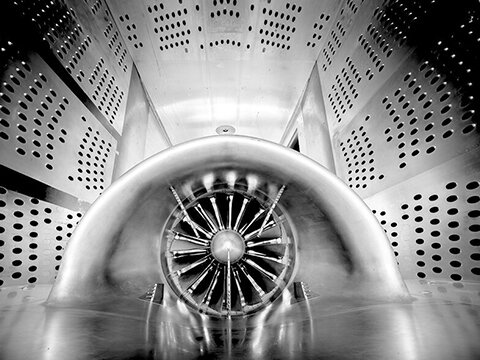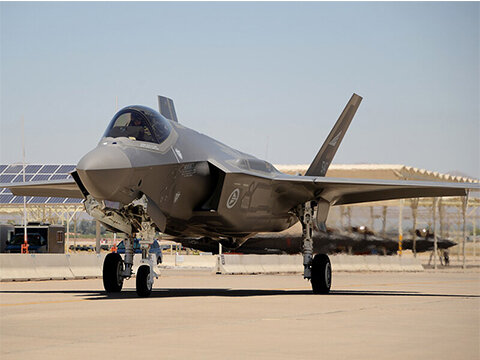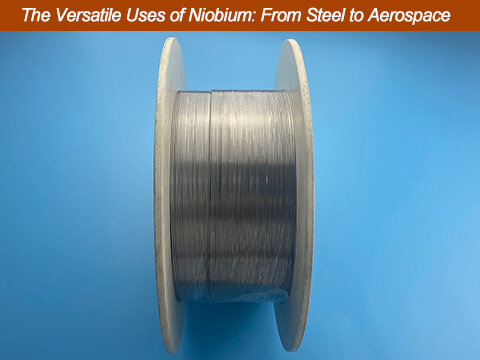In simple terms, niobium is a strong, lightweight metal that can handle extreme heat. It resists rust, is easy to shape, and has special electrical properties at very low temperatures. These qualities make niobium an essential material in industries from construction to medical technology.
Niobium in Steel Production

The Primary Use: High-Grade Structural Steel
Niobium is crucial in making high-grade structural steel, which is known for its strength and durability. When added to steel, niobium helps create a type of high-strength, low-alloy (HSLA) steel. This special steel is used in building skyscrapers, bridges, and other critical infrastructure because it can handle heavy loads and tough conditions.
The small amounts of niobium refine the steel's grain structure, making it stronger and lighter. This means structures made from this steel are more efficient and reliable.
Enhancing Strength, Ductility, and Weldability
Niobium improves steel in several key ways:
-
Strength: Niobium boosts the steel's tensile strength, allowing it to support heavier loads and resist bending or breaking.
-
Ductility: It makes the steel more flexible, so it can bend or stretch without breaking. This is important for creating materials that can withstand dynamic forces or be shaped into complex designs.
-
Weldability: Niobium makes the steel easier to weld. It helps prevent problems like cracking and weak joints, ensuring that welded parts are strong and durable.
In summary, niobium enhances steel by making it stronger, more flexible, and easier to weld, which is vital for creating reliable and efficient structural materials.
Niobium in Nickel-Based Superalloys

Second Major Use: Role in High-Temperature Superalloys
Niobium is vital in creating nickel-based superalloys, which are designed to perform well at extremely high temperatures. These superalloys are used in environments where heat and pressure are very intense. Niobium improves the superalloy's ability to stay strong and stable even under such harsh conditions.
By adding niobium, the alloy's structure is reinforced, which helps it maintain its strength and resist weakening or damage when exposed to high temperatures. This stability is essential for ensuring the superalloy remains reliable over time.
Applications in Jet Engines and Gas Turbines
Niobium-enhanced superalloys are crucial for both jet engines and gas turbines:
-
Jet Engines: Jet engines operate at very high temperatures due to the heat from combustion. Niobium helps the superalloys used in these engines stay strong and resist heat damage. This is important for parts like turbine blades and nozzles, which must endure intense conditions and maintain performance during flight.
-
Gas Turbines: Gas turbines used in power generation also face high temperatures. Niobium in the superalloys used for turbine blades and other components ensures they can handle the heat and pressure effectively. This helps improve the turbine's efficiency and extends its lifespan.
Overall, niobium's role in these superalloys makes them better suited for high-temperature applications, leading to more efficient and durable engines and turbines.
Niobium in Aerospace Applications

Niobium-Based Superalloys for Aerospace Components
Niobium is crucial for making superalloys used in aerospace parts. These superalloys need to handle extreme temperatures and pressures. Niobium helps make these alloys stronger and more durable, so they can keep performing well in the harsh conditions of space and high-speed flight.
In aerospace, parts like turbine blades and engine components must resist high heat and wear. Niobium strengthens these superalloys, ensuring they don't weaken or break under stress. This means that aircraft and spacecraft using niobium-based superalloys are more reliable and long-lasting.
Lightweight Niobium Alloys in Spacecraft Construction
Niobium is also used in spacecraft because it's both strong and lightweight. Spacecraft need materials that are sturdy but not heavy to improve performance and efficiency.
Niobium alloys are perfect for this. They provide the strength needed to endure the stresses of launch and space travel, while keeping the spacecraft's weight down. This helps the spacecraft use fuel more efficiently and perform better.
Additionally, niobium alloys help make various parts of the spacecraft, like supports and heat shields, more durable. This ensures the spacecraft can withstand the tough conditions of space and continue to function well on long missions.
In summary, niobium is valuable in aerospace for making strong, heat-resistant superalloys and lightweight alloys that improve the performance and durability of aircraft and spacecraft.
Niobium in the Automotive Industry

Niobium might not be a household name, but it's making a big difference in the cars we drive every day. This remarkable metal is helping to make vehicles stronger, lighter, and more fuel-efficient, all of which contribute to better performance and safety on the road.
Strengthening Automotive Components
One of the key ways niobium is used in the automotive industry is by boosting the strength of essential car parts. When niobium is added to steel, it creates high-strength steel that can handle a lot of stress and pressure. This type of steel is used in critical parts of the car, like the frame and suspension, which need to be tough to keep us safe. Thanks to niobium, these components are not only stronger but also more reliable, ensuring that cars can withstand the rigors of everyday driving and even more challenging conditions.
Reducing Vehicle Weight and Improving Fuel Efficiency
Another huge advantage of using niobium in cars is that it helps reduce the overall weight of the vehicle. Lighter cars are more fuel-efficient because they need less energy to move, which means less fuel consumption and lower emissions. By incorporating niobium into the steel used for various car parts, manufacturers can make vehicles that are not only lighter but also maintain the strength needed to keep drivers safe. This means you get a car that’s both environmentally friendly and performs well on the road.
In short, niobium is a key player in making modern cars better in almost every way. It's helping manufacturers build vehicles that are safer, more efficient, and better for the planet, all while improving the driving experience.
Sustainability and Recycling of Niobium
Niobium is a crucial metal used across various industries, but it's essential to consider its environmental impact and recycling potential.
Environmental Impact of Niobium Mining
Like other metals, niobium mining can affect the environment. It involves digging up large areas, which can disrupt ecosystems and wildlife. Mining also produces waste and consumes significant water and energy, contributing to pollution and carbon emissions.
Efforts are underway to make niobium mining more eco-friendly. Companies are enhancing mining techniques to minimize land disruption and waste. They are also improving water management and using cleaner energy sources to reduce pollution. These improvements help lessen the environmental impact of niobium mining.
Recycling and Sustainable Practices
A positive aspect of niobium is its recyclability. When niobium-containing products reach the end of their life, the metal can be recovered and reused. This recycling process conserves resources and reduces the need for new mining.
Sustainable practices are also being adopted to make niobium use more efficient. Manufacturers are designing products that utilize niobium better, cutting down on production waste. There's also a push to create longer-lasting products, which means fewer replacements and less demand for new niobium.
In summary, while niobium mining has an environmental impact, ongoing improvements in mining practices and recycling are making its use more sustainable. By focusing on these practices, we can continue to benefit from niobium while protecting the environment.
Conclusion
In summary, niobium is a powerful metal used in many important areas, including the construction, aerospace, and automotive industries. It's valued for its strength, lightweight properties, and resistance to extreme temperatures. While mining niobium can have environmental impacts, ongoing improvements in mining practices and recycling efforts are helping make its use more sustainable.
At AEM Metal, we are committed to sustainability by providing high-quality pure niobium and niobium alloy products worldwide. We ensure that our materials meet your needs while supporting eco-friendly practices.
For more information about our niobium products or to place an order, please contact us today. Let's work together to make the most of niobium while protecting our environment.















